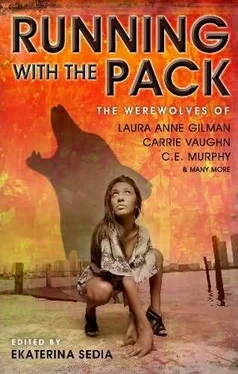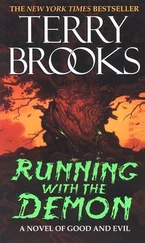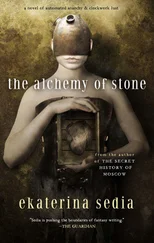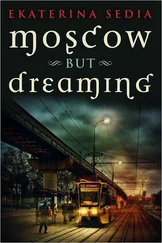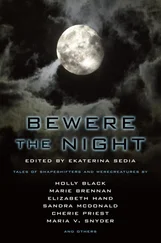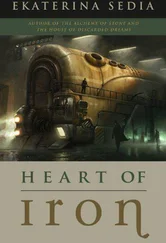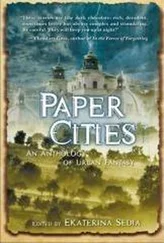(Grief.)
Her bones seemed painfully soft and frail in her human form; she could hardly feel her blood pumping through such long, twisted veins. She set her weakling jaw against the shaking, but her skeleton rattled inside the meat.
It was worse than the new moon, ten times worse. It was the tree roots erupting through the pavement, shattering the stone.
Mark got both arms under her and carried her inside, out of the ice and the dark. He smelled like snow and detergent and fear, and she didn’t know why a smell like that would be comforting to a wolf.
(She didn’t know much about love, back then.)
He carried her up the stairs and ran a hot shower until the blood and dirt were gone, and his hands were shaking.
(Fear, she thought then. She knows now—desire.)
When she came downstairs again, he was standing outside. There was a wolf’s footprint in the snow outside the cabin. It was the same length as Mark’s foot, and as wide; her claws had pierced right through the snow and dug up four thin sprays of black dirt across the white as she ran.
He passed his foot over it, smoothing the snow free of the evidence. She waited, wondering what she would do if he threatened to expose her.
(It was a lie. She knew what she would do. On four legs, she could hunt without thinking.)
After a long time, he took a step backwards, closer to her, without turning.
“Does it frighten you?” he asked.
She said, “Always.”
When he came at her, the kiss drove her against the door with a thud, and he tore away the blanket as if he wanted some part, any part, of her fight.
She dragged her nails over his back, five thin trails of red against his skin.
The dire wolf that lives in human form spends the day of the new moon curled in a corner, trembling, aching, grinding her teeth as the bones scream for change. The moment of transformation is unbearable (there is always the wrenching cry), but it passes, and the bones and the fur and the teeth of the wolf are her relief.
A dire wolf can turn at will, but it’s the last line of defense; between pain and death, some choose death.
Changing at every new moon from human to wolf and back can drive you mad. Most dire wolves eventually give in to their true form, and make their homes in forests, or tundra if arctic wolves are nearby, or desert caves. They can go anywhere once the moon has lost its power over them. What animal would stand up to a beast twice as large as a wolf, twice as fast, twice as cunning?
Legend, which looks for monsters within its own neighbors, claim that werewolves are people who achieve the body of the wolf.
This is untrue.
The dire wolf took on a human form; down at the bone, between every breath, each of them is really the animal. The human shape is a useful trick, that’s all.
(Adapt or die.)
Christopher’s waiting at the lab when she comes back.
“Mark says it looks like an Arctic wolf that got on the wrong side of a bear attack,” he says. “What are you thinking it is?”
“I think that wolf had a pretty sad end,” she said. “Did you find anything else of the skeleton?”
Christopher shakes his head. “We don’t have the manpower we used to, but as far as we looked, there was nothing to find. Maybe the head got carried over to where our guy found it.”
“Was there any skull? Any other bones?” She thinks about the deep, low temporal fossa—a jaw is easy to disguise, but the skull would be hard to explain.
He shakes his head.
“Where’s Mark?”
“Went out looking for you,” Christopher says. “I’ll call him back in on the radio.”
When she’s alone, she looks at the jaw under the magnifying glass, marks on her report the hundred tiny dents where the birds pecked the flesh away, the smooth expanses where the insects got there at last, carrying away whatever was hanging on.
The bone is cool, and smooth as human skin.
Mark opens the door too fast, gets too close.
“I saw the tracks,” he says, quietly, so Christopher won’t hear. “It’s big.”
He means, it’s bigger than you. His breath is warm on her scalp.
“I’ll win,” she says.
After a little silence, he says, “I’d forgotten what it feels like to be close to you.”
She doesn’t know what he means; doesn’t dare ask.
The dire wolf was too slow to evolve, everyone knew.
“Poor guys,” Alice said (she pitied all the bones). She waggled the saber-toothed tiger skull she was working on, like it was nodding. “The saber-tooth says nature cuts us all down sooner or later. He should know. Poor kitty.”
Alice always got punchy near the end of an excavation.
“Nature might surprise you,” Velia said, ran her tongue over her teeth.
“Promise me you won’t fight,” he says.
They’re in his room. He’s pacing; she’s watching the moonlight play over his face. When he passes back and forth, his shoulder brushes her shoulder.
“It doesn’t want to fight,” she says.
He stops and looks at her. “What can I do? How can I help you?”
She doesn’t know how to explain how he’s only ever been a danger. She doesn’t know how to tell him how different he is from most of his kind, in loving her.
(Most wolves find a mate in each other, because humans are frail; because when faced with a monster, a normal human senses danger and retreats.)
She says, “Live where there are no wolves.”
He frowns like she’s cut him. She knows that pain.
She wants to leave here with him and go somewhere where there are no wolves, carve some narrow sliver of love from each of them, see what it can build.
Doesn’t dare.
They don’t embrace; his hands are shaking, her hands are fists. He kisses her temple, presses his lips to the temporal fossa; she holds her breath, closes her eyes.
At night, the wolf’s tracks are easier to follow. There’s a better quality of shadow when the moon is out, and in her waxy coat and bare feet, Velia is an extension of the snow; only her dark eyes and black hair give her away.
(They used to be the color of dust, and her face was broad and sharp-mouthed. There’s too much human in her face, now.)
The den is in a shallow cave, close to the surface. It’s shallow enough that by the time Velia smells decay, she is looking past the narrow entry through the darkness to the wolf and the human body of its dead mate.
Of course there were no wolf bones to find; the human shape is the dire wolf’s last defense.
But Velia’s eyes have always been sharp, and she can see from where she’s standing that there’s an empty shadow beneath the torn throat, the wrinkled skin. (She was old, old enough for even the true wolf to die.)
The break in the jaw was a clean one. It must have snapped as he dragged his mate’s body to the shadow of the den, before the change, where he could make sure no stranger would find her.
He watches her with gleaming eyes, and she braces herself against his sorrow.
She says, “We found the bone. You’re safe. You can find another place.”
The head droops, and a huff of breath mists over the black for a moment.
Then the wolf lies down beside its mate and stretches its neck along the ground, waiting for the strike.
Velia hadn’t known enough true wolves to know what can happen when a wolf is parted from its mate. She had hoped her parents were the exception, and not the rule. But the dire wolf does what she dreaded; it mates for life.
No, she thinks, I can’t, I can’t, but the wolf is willing. (The human form is just a trick; at the roots, the wolf is always waiting.)
When the change comes over her, the other wolf whimpers a welcome. She chokes through the pain before the wolf form takes, bites down on her cries.
Читать дальше
